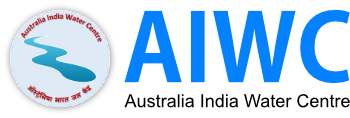| Name: | Wendy Timms |
| Highest qualification and awarding university | PhD, UNSW, Sydney, Australia |
| Designation | Professor |
| Employer | Deakin University |
Contact details:
|
|
| wendy.timms@deakin.edu.au | |
| +61404823331 | |
| Home page link on your employer web site if available | https://www.deakin.edu.au/about-deakin/people/wendy-timms |
| Key areas of interest | Wendy’s broad research interests are currently:
My research combines site based and in situ methods, with laboratory experimentation and numerical modelling using various codes. |
| Web links for your research profile on Google scholar; ORCID or ResearchGate (if available); only one of them please. | https://www.researchgate.net/profile/Wendy_Timms |
Professor Wendy Timms has 25+ years of professional experience in water project challenges across Australia, and also Canada and South East Asia. She has broad experience across consulting engineering, government, research and education as a groundwater engineer and environmental engineer. Wendy joined Deakin University as Professor of Environmental Engineering in 2018, after 6 years in UNSW School of Minerals and Energy Resource Engineering. Wendy is Chartered Professional Engineer in Australia (Civil Engineer and Environmental Engineer), and is outgoing Vice-President of International Association of Hydrogeologists (Australasia & Pacific). Wendy is author of over 200 technical reports and 50+ peer reviewed journal papers.
Research Project
- Otway environmental monitoring for carbon sequestration (CO2CRC industry funding).
- Optimisation of water management for coal mines – water tracer tools (Australian Coal Research Program).
- Groundwater and geology of Thirlmere Lakes area near Sydney, Australia. (Funded by New South Wales Environmental Trust).
Key Publications/Reports
Timms, W, Nair, S., R Nelson, 2019, More joules per drop – how much water does unconventional gas use compared to other energy sources and what are the legal implications? Environmental and Planning Law Journal. 36:565-582
McMillan, TC; Rau, GC; Timms, WA; Andersen, MS, 2019. Utilizing the impact of Earth and atmospheric tides on groundwater systems: A review reveals the future potential. Reviews of Geophysics, 57(2):281-315
https://agupubs.onlinelibrary.wiley.com/doi/abs/10.1029/2018RG000630
David K; Wendy Timms; Cath E. Hughes, Jagoda Crawford; Dayna McGeeney, 2018. Application of pore water stable isotope method to characterise a wetland system. Hydrol.Earth Syst. Sci. 22, 6023-6041, https://www.hydrol-earth-syst-sci.net/22/6023/2018/
Timms W;Holley C, 2016, ‘Mine site water-reporting practices, groundwater take and governance frameworks in the Hunter Valley coalfield, Australia’, Water International, vol. 41, pp. 351 – 370, http://dx.doi.org/10.1080/02508060.2016.1173278
Timms, W., Young, R., Huth, N, 2012. Implications of deep drainage through saline clay for groundwater recharge and sustainable cropping in a semi-arid catchment, Australia. Hydrological and Earth Systems Science, 16, 1203–1219, 2012, doi:10.5194/hess-16-1203-2012.

